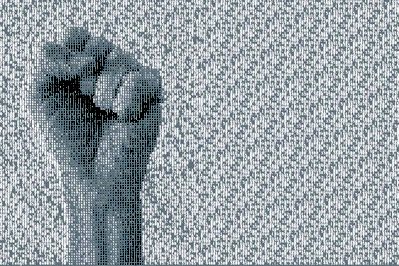Truthdigger of the Week: Barrett Brown
Since his arrest in 2012, Brown has come to be seen as one of those subjected to predatory treatment as the U.S. government persecutes journalists who use underground tactics to expose wrongdoing. tsevis (CC BY-SA 2.0)
tsevis (CC BY-SA 2.0)
Every week the Truthdig editorial staff selects a Truthdigger of the Week, a group or person worthy of recognition for speaking truth to power, breaking the story or blowing the whistle. It is not a lifetime achievement award. Rather, we’re looking for newsmakers whose actions in a given week are worth celebrating.
In Dallas on Thursday a federal judge sentenced Barrett Brown, journalist and one-time collaborator with the hacktivist group Anonymous, to 63 months in prison. Since his arrest in September 2012 on allegations of threatening the life of an FBI agent in a YouTube video, Brown has come to be seen as one of those subjected to predatory treatment as the U.S. government persecutes journalists who use underground tactics to expose the wrongdoing of government and business leaders.
After two weeks of being held without charge, Brown was indicted on charges of threat and retaliation against a federal officer, as well as conspiring to release personal information about a government employee. Two months later he was indicted on 12 charges relating to the hacking of the government- and business-friendly private firm Stratfor General Intelligence in 2011.
One of the early charges that was a major factor in his case and sentencing involved Brown’s reposting of a link that contained authentication information for thousands of credit card accounts associated with Stratfor. (The acquisition of that information was part of a larger hack carried out by former Truthdigger of the Week Jeremy Hammond.) Advocates of Brown insisted that the information in the link was already publicly available, and that by admitting it as a basis of Brown’s prosecution the court was setting a dangerous precedent. As Kevin Gallagher, director of the Free Barrett Brown campaign, explained, “Basically … if you share a link to publicly available material without knowing what’s in it — maybe it could contain stolen credit card info — you could be prosecuted.”
“Any journalist that uses hackers as sources is extremely chilled by this,” Gallagher added. And those who repost text that contains links they have not personally investigated should be chilled as well by what The Intercept called “the criminalization of a basic function of the Internet: hyperlinking.”
Reportedly, Brown is eligible for supervised release after one year, at which time his computer activity would be monitored. The judge ruled that he must pay about $890,000 in restitution payments to Stratfor and other companies targeted by Anonymous, as well as $225 in fines.
Some observers say Brown was treated like dangerous trash by prosecutors during his trial, but Brown was contrite at his sentencing, expressing regret for posting the threatening videos that led to his arrest, calling them “idiotic” and retiring the explanation offered by his defense that he had made them in a manic state brought on by a withdrawal from drugs that were intended to help him end his heroin use.
After the judge’s ruling, Brown joked, “For the next 35 months … I’ll be provided with free food, clothes and housing as I seek to expose wrongdoing by Bureau of Prisons officials and staff and otherwise report on news and culture in the world’s greatest prison system.”
For aiming himself at those who deserve to be investigated and criticized for their abuses of power entrusted to them by the public, and for going down doing it, we honor Barrett Brown as our Truthdigger of the Week.
Read the full statement Brown read to the court during his sentencing hearing here.
Your support matters…Independent journalism is under threat and overshadowed by heavily funded mainstream media.
You can help level the playing field. Become a member.
Your tax-deductible contribution keeps us digging beneath the headlines to give you thought-provoking, investigative reporting and analysis that unearths what's really happening- without compromise.
Give today to support our courageous, independent journalists.






You need to be a supporter to comment.
There are currently no responses to this article.
Be the first to respond.